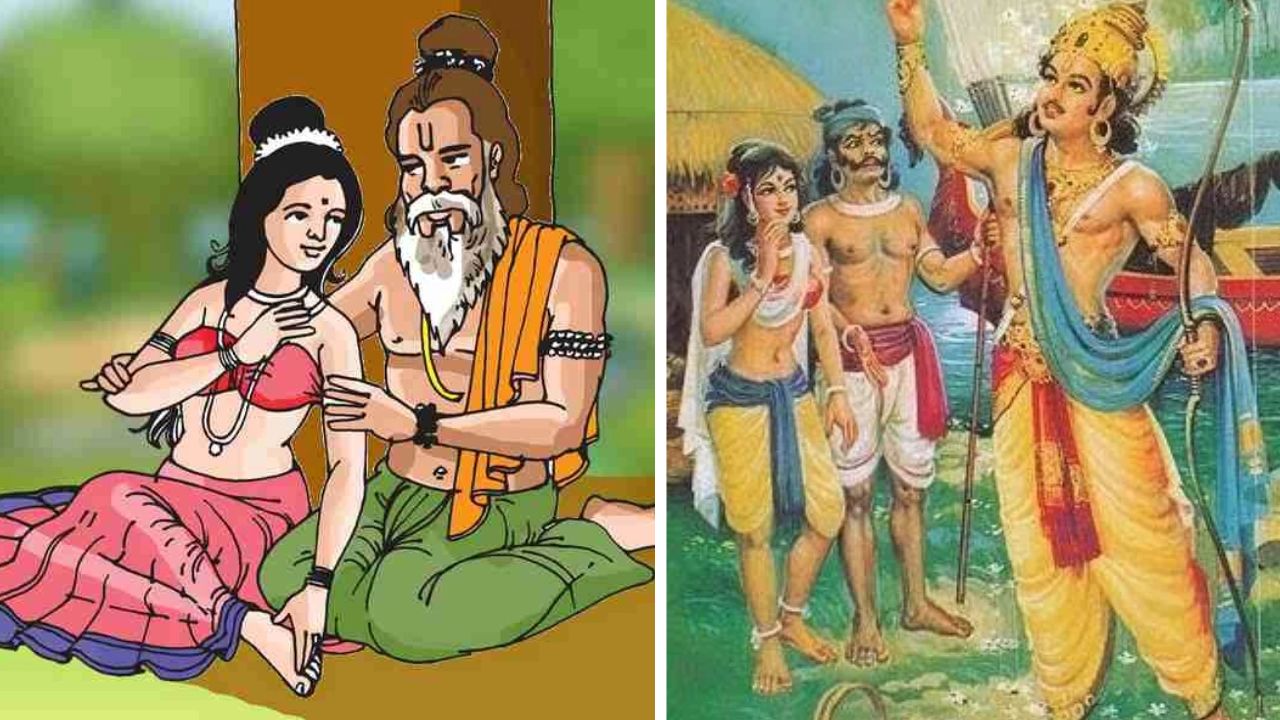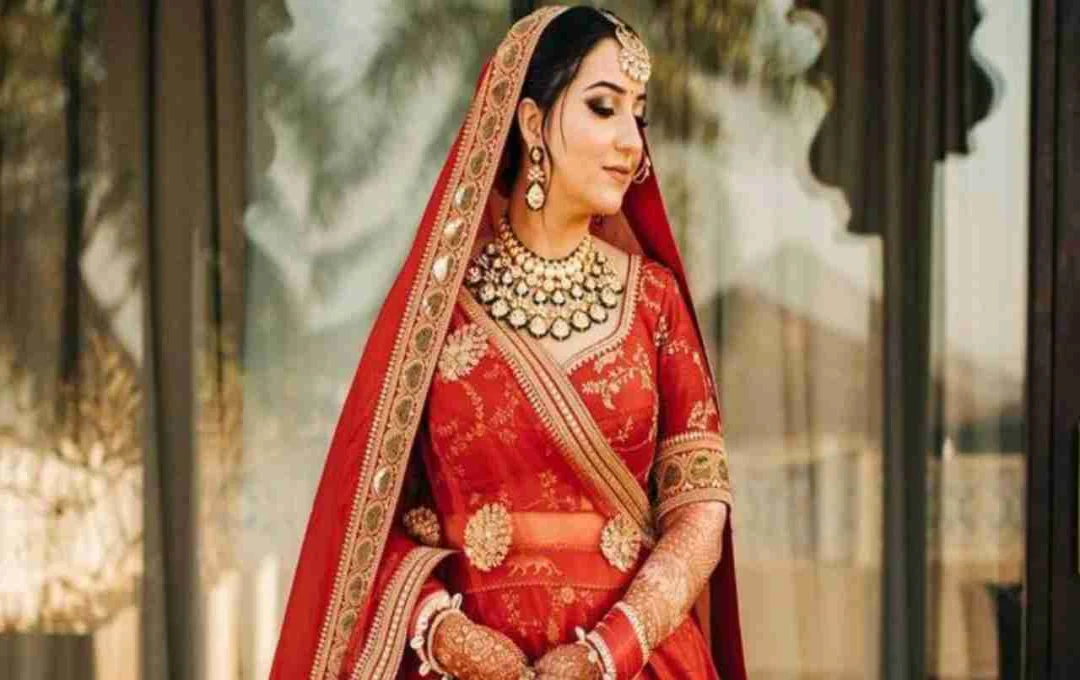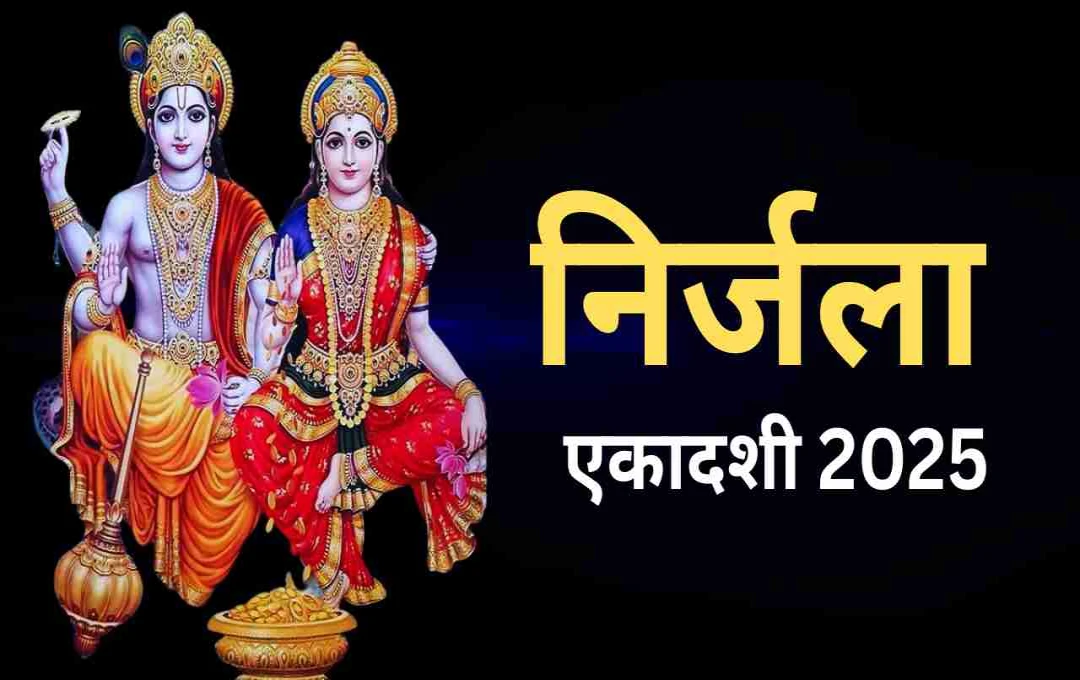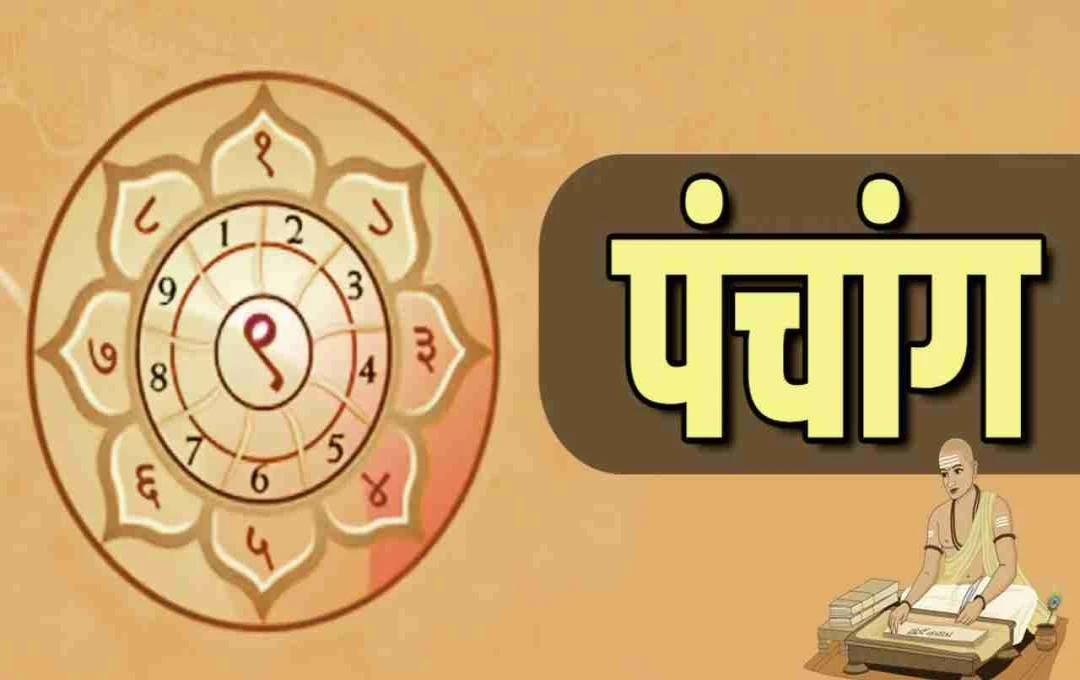King Shantanu, Satyavati, and Sage Parashar's 3 Conditions that Changed the Course of the Mahabharata
The epic Mahabharata begins with the story of King Shantanu. Satyavati is a pivotal character in the Mahabharata. She married King Shantanu of Hastinapur. She was born to Adrika, an Apsara (celestial nymph) who herself was born to another Apsara named Vasu, through a celestial being. Later, she came to be known as Satyavati. King Shantanu's son was the revered Bhishma. Let us explore how King Shantanu's actions led to the lineage of the Kauravas and Pandavas, and how three crucial conditions played a significant role.
The First Condition
In the Ikshvaku dynasty, there was a king named Mahabi. He attained heaven after performing Ashvamedha and Rajasuya yagnas (sacrifices). One day, all the Gods and Brahma were attending to Goddess Ganga. A gust of wind blew away Ganga's clothes. Everyone averted their gaze, but Mahabi continued to look. Brahma then banished her to the mortal realm, stating that the Ganga she saw would become her enemy. Thus, Mahabi was reborn as King Pratipa.
After the valiant King Pratipa, his son Shantanu became the king of Hastinapur. Shantanu married Ganga. At the time of their marriage, Ganga imposed a condition: she would return to heaven on the day he asked her about what she did with their newborn sons. Ganga gave birth to eight sons, seven of whom she cast into the river. Until then, King Shantanu did not question her actions. But when the eighth son was born, he couldn't bear it any longer. Ganga explained that as per their agreement, she had to return to heaven. The seven sons were the seven Vasus, who were cursed to be born in human form; therefore, she had freed them. The eighth Vasu now remained under his protection. King Shantanu named his eighth son Devavrata, who later became known as Bhishma. After giving birth to her eighth son, Ganga ascended to heaven, leaving King Shantanu alone.
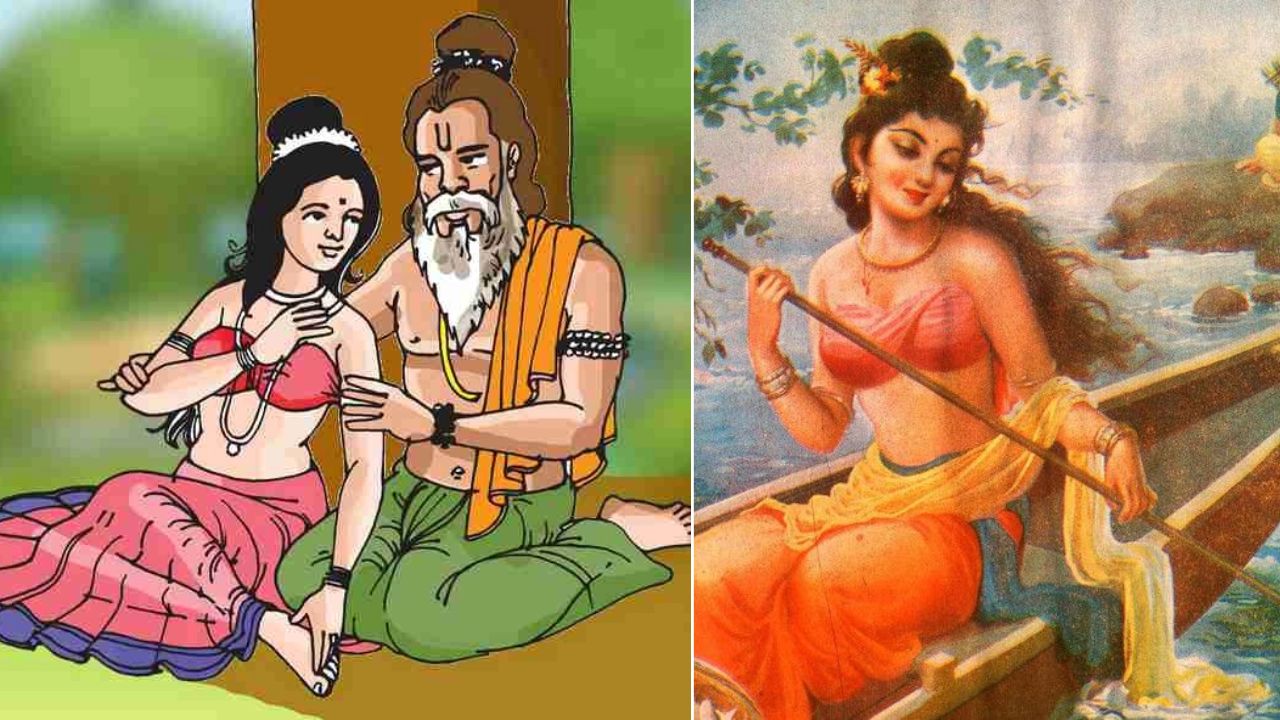
The Second Condition
One day, Shantanu was strolling along the banks of the Yamuna River when he saw a beautiful maiden boating. Shantanu was captivated by her. He inquired about her name, and she replied, "Your Majesty, my name is Satyavati, and I am a fisherman's daughter." Shantanu fell in love with Satyavati, and she reciprocated his feelings. Shantanu proposed marriage to Satyavati's father, but he imposed a condition: only Satyavati's son would be the Yuvaraja (crown prince) of Hastinapur. Only then would he give his daughter's hand in marriage. Hearing this, the king returned to his palace, worried about Satyavati. When Bhishma, Ganga's son, learned of this, he vowed to remain celibate for his father's happiness and facilitated the marriage of Satyavati to his father.
Shantanu and Satyavati had two sons, Chitrangada and Vichitravirya. Chitrangada died in a Gandharva war (war between celestial beings), and Vichitravirya married Ambika and Ambalika. Vichitravirya had no children with either and also passed away. Then, through Sage Vedavyasa, Dhritarashtra and Pandu were born from the wombs of Ambika and Ambalika respectively.
The Third Condition
Satyavati was the daughter of a fisherman named Dheer. She ferried people across the Yamuna River in her boat. One day, she was carrying Sage Parashar in her boat. Sage Parashar was captivated by her and expressed his desire to be with her. Satyavati presented three conditions before him: 1. No one should witness the act; Parashar created a temporary screen. 2. Her virginity should remain intact; Parashar assured her that her virginity would be restored after the child's birth. 3. She desired that her fishy odor should transform into a pleasant fragrance; Parashar created a fragrant atmosphere around her. From the union of Satyavati and Sage Parashar, the great sage Vedavyasa was born. It is said that it was through Sage Vedavyasa that Dhritarashtra and Pandu were born.
